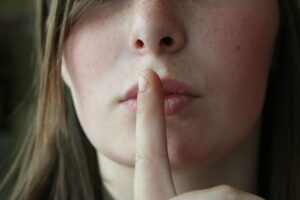From PsychCentral/Darius Cikanavicius: “If you look at a very small child, at someone who’s still for the most part untraumatized and unbroken, you notice that children can be exceptionally honest.
As I write in the book Human Development and Trauma: How Childhood Shapes Us into Who We Are as Adults:
Meanwhile, infants and small children are exceptionally authentic beings because their emotional reactions and their thoughts are raw and honest. If they are happy, they smile, giggle, exclaim in pure joy, and feel excited, motivated, curious, and creative. If they are hurt, they cry, disengage, get angry, seek help and protection, and feel betrayed, sad, scared, lonely, and helpless. They don’t hide behind a mask.
Sadly, adults oftentimes see this natural phenomenon as a nuisance, silliness, or even a problem. Moreover, in order to adapt and survive in certain environments, lying is easily the best strategy. Then all these children, including us, grow up and we have a society where lying, dishonesty, fakeness, and inauthenticity are normal.
Let’s explore why children lie and hide their true thoughts and feelings, and then grow up into inauthentic adults.
1. Punished for telling the truth
2. Contradictory standards
3. Disbelieved or not taken seriously
4. Punished for feeling certain emotions
5. Bad examples

***
Back to Around the Web











